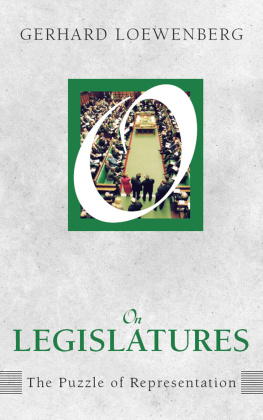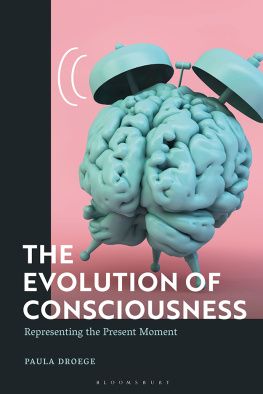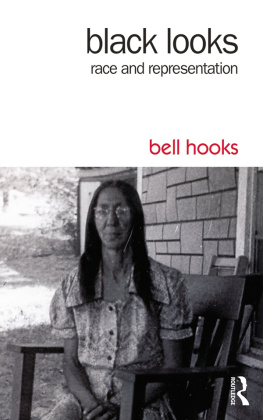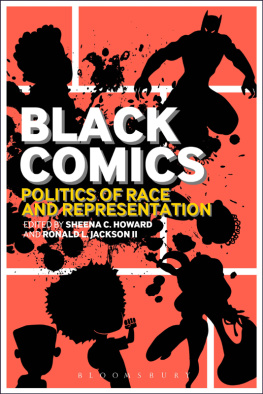First published 2012
by Paradigm Publishers
Published 2016
by Routledge
2 Park Square, Milton Park, Abingdon, Oxon OX14 4RN
711 Third Avenue, New York, NY 10017, USA
Routledge is an imprint of the Taylor & Francis Group, an informa business
Copyright 2012, Taylor & Francis.
All rights reserved. No part of this book may be reprinted or reproduced or utilised in any form or by any electronic, mechanical, or other means, now known or hereafter invented, including photocopying and recording, or in any information storage or retrieval system, without permission in writing from the publishers.
Notice:
Product or corporate names may be trademarks or registered trademarks, and are used only for identification and explanation without intent to infringe.
Library of Congress Cataloging-in-Publication Data
Peller, Gary.
Critical race consciousness: reconsidering American ideologies of racial justice /
Gary Peller.
p. cm.
Includes bibliographical references and index.
ISBN 978-1-59451-905-5 (pbk.: alk. paper)
1. United StatesRace relationsHistory20th century. 2. Civil rights
movementsUnited StatesHistory20th century. 3. Black nationalismUnited
StatesHistory20th century. 4. MulticulturalismUnited StatesHistory20th
century. I. Title.
E185.61.P455 2011
305.800973dc22
2011008504
ISBN 13: 978-1-59451-904-8 (hbk)
ISBN 13: 978-1-59451-905-5 (pbk)
Designed and Typeset by Straight Creek Bookmakers.
I am grateful to many friends and allies who provided criticism, feedback, and encouragement for this project.
In particular, many of the ideas contained in this book were developed in the midst of my intellectual and political engagement with Duncan Kennedy, Kimberl Crenshaw, and Peter Gabel over the course of two decades. Daniel Hornal and Christopher Clark provided excellent research assistance, and Betsy Kuhn gave her time generously to help edit and prepare the manuscript.
Part of originally appeared in Tikkun magazine.
Gary Peller
March 3, 2011
Washington D.C.
The entire civil rights struggle needs a new interpretation, a broader interpretation. We need to look at this civil rights thing from another anglefrom the inside as well as from the outside. To those of us whose philosophy is Black nationalism, the only way you can get involved in the civil rights struggle is to give it a new interpretation. The old interpretation excluded us. It kept us out.
Malcolm X, 1963
This book presents a critical analysis of dominant American ideologies about racial justice over the past 50 years or so.
Despite the racial progress reflected in the 2008 election of Barack Obama as president of the United States, the Black community in America is in crisis on a variety of fronts: economic, educational, cultural, and spiritual. My goal here is to trace the particularly ideological roots of this contemporary situation.
In contrast to the celebratory manner in which the conventional narratives of Americas racial progress treat the Supreme Courts decision in Brown v. Board of Education and the subsequent development of civil rights law in the 1960s, I offer a critical analysis of the role integrationist ideology has played in limiting race reform over the last several decades.
The conventional treatment of the history of American racial enlightenment presents the struggle for civil rights and against white supremacy as the defining racial conflict of the 1960s. For this narrative, the election of Barack Obama represents the symbolic completion of the struggle against the exclusion of Blacks from positions of power and prestige (although most would add the qualification, There is still much work to be done.).
However, the important struggles over race in the 1960s and 1970s were not solely between the proponents of civil rights and those of white supremacy. The meanings of racial subordination and Black liberation (of civil rights) were themselves contested. Critical elements of the structure of contemporary racial discourse were set in the conflict within the so-called civil rights community over the meaning of racial justice.
My thesis is that todays conventional wisdom about race was forged in the ideological confrontation between liberal integrationism and Black nationalism during the 1960s and 1970s, and in the resulting marginalization of Black nationalists like Malcolm X and the Black Panthers, accomplished by identifying their race consciousness with that of white supremacists. Instead of a nationalist frame, race has been understood through a set of beliefswhat I call integrationism that locates racial oppression in the social structure of prejudice and stereotype based on skin color and that identifies progress with the transcendence of a racial consciousness about the world.
As I describe it, Black nationalismat least as articulated in the late 1960s was a sophisticated theoretical alternative to this liberal view of race and not a Black version of white supremacy ideology, as integrationists insist. In its articulations by Malcolm X, Eldridge Cleaver, the Black Panthers, Harold Cruse, and other leftist nationalists, Black nationalism embodied a deep, historicist critique of the universalist assumptions of the civil rights conception of racial progress.
However, Malcolm X did identify the basic racial compromise that the incorporation of the civil rights struggle into mainstream American culture would eventually embody: Along with the suppression of white racism that was the widely celebrated aim of civil rights reform, the dominant conception of racial justice was framed to require that Black nationalism be equated with white supremacy and that race consciousness on the part of either whites or Blacks be marginalized as beyond the good sense of enlightened American culture.
In contrast, within at least a faction of the African American community, Black nationalists (on both the right and left) have historically opposed an integrationist understanding of racial progress. Instead, they have asserted a positive and liberating role for race consciousness, as a source of community, culture, and solidarity, and as something to build upon, rather than transcend. They developed a thorough critique of integrationism as inevitably, or at least historically, linked to assimilation. Within the white community, the issue of race consciousness symbolically divided whites committed to racial justice from whites committed to racial domination. Within the Black community, however, the issue of race consciousness historically divided Blacks committed to norms of racial solidarity from two groups: from Black assimilationists who found white culture more attractive, and from Blacks who found integration preferable if the price of Black racial identity was the continuation of white racial identity in its traditional, repressive form.
The conflict between nationalists and integrationists in the late 1960s and early 1970s represented a critical juncture in American race relations. By then, Black nationalism arguably had overtaken integrationism as the dominant ideology of racial liberation among African Americans, while virtually all liberal and progressive whites had embraced a vision of integration as the ultimate definition of racial justice. Although there has been some refinement since this historical momentparticularly the development of progressive and, to a more limited extent, national commitments to a limited form of multiculturalismthe basic boundaries of contemporary mainstream thinking about race were set in the early 1970s, when a loose coalition of moderate African Americans joined liberal and progressive whites to resist and equate Black nationalists and white supremacists. In 1964, when Malcolm X asserted that this conventional interpretation of civil rights excluded Black nationalists, he could not have foreseen that nationalist activism would revitalize and transform the struggle against racial oppression in the late 1960s and early 1970s, only to be relegated once more to the cultural margins and urban street corners by the 1980s.









